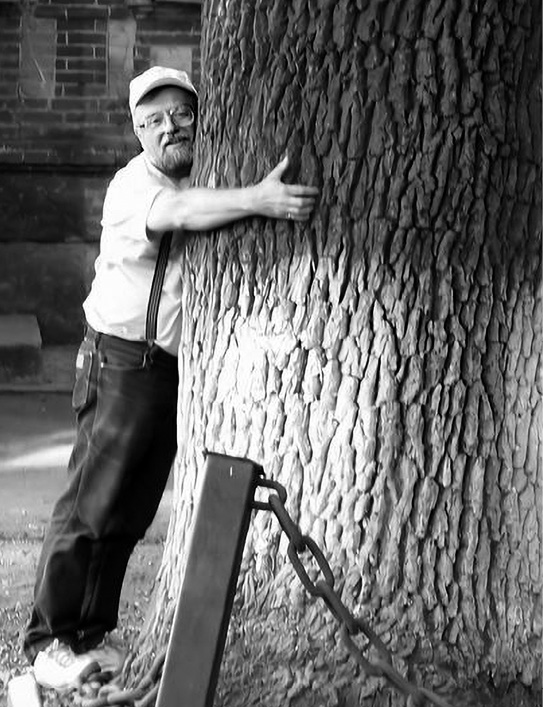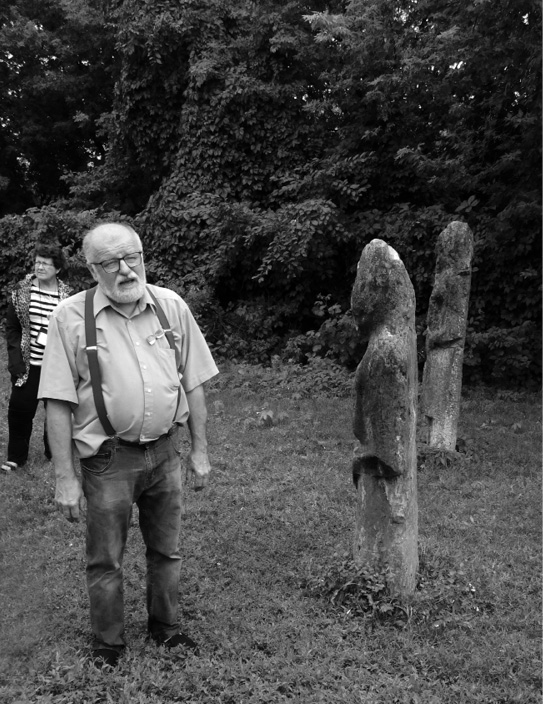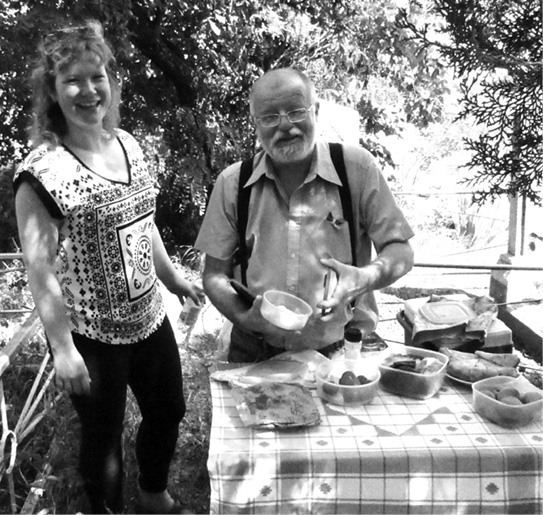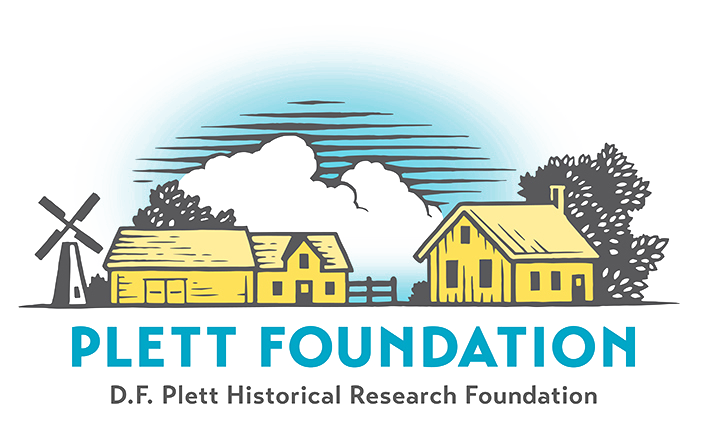A Mennonite Encyclopedia: Victor Penner
George Dyck
Many of us got to know Victor Penner through the tours he led in Zaporizhzhia and to the former Mennonite settlements in Ukraine. Over the years, Victor researched their history and geography to become a walking encyclopedia of knowledge. On June 30, 2020, he passed away in Zaporizhzhia, Ukraine.

Victor’s great-grandfather, Mennonite minister Peter Johann Penner, applied and received permission in 1922 for his entire family, including married sons, to emigrate to Canada. Unfortunately, Peter died in December 1922 and plans to emigrate fell through, as many thought that Lenin’s New Economic Policy would improve their lot in life. Of the ten Penner children, only sons Jacob (in late 1923) and Rudolf (1927) left Chortitza to start a new life in Canada. Many of the remaining clan would perish in exile.
Son Nikolai, Victor’s grandfather, was arrested and shot in 1937, leaving his young Ukrainian wife and their only son, Oleg, to fend for themselves. Unfortunately, officials saw Oleg as “guilty by association,” being the son of an “enemy of the state,” and this would limit his potential future. Recognizing this, he joined an orchestra as a means to gain acceptance into the medical university in Dnipropetrovsk, where he studied from 1948 to 1954. In 1953 he married his Ukrainian wife, Alexandra. Both were doctors. The stigma of his father’s arrest in 1937 forced Oleg and his wife to accept work in Kazakhstan. When the time came for their first child to be born, they decided that Alexandra should go back to Ukraine for the birth. And so it followed that Victor Penner was born in Melitopol in 1956.
The family moved to Zaporizhzhia, where Victor attended school and graduated in metallurgical engineering. Victor fell in love with Ludmila and they married in the spring of 1979. Their son Nikolai was born in 1981, and Pavlo in 1988. Meanwhile, Victor worked towards his second university degree, in English language studies. This resulted in work as a translator of manuals involving machinery. Victor was obligated to serve in the military, which he did as an artillerist. All the while he found it difficult to provide comfortable housing for his growing family, as they were housed in one room in an apartment. Winter clothing was hard to get.
Work as an engineer did not pay well. Inflation after Ukrainian independence often meant that by the end of the week one could only buy a fraction of what one could have bought at the beginning. At times pay was delayed for many weeks, and by then it did not buy anything. Lines for purchases of food and other items were exceptionally long, and one bought whatever was on the shelf or one would get nothing. During this period, Victor’s entrepreneurial instincts led him and a friend to start their own business manufacturing aftermarket car parts. By 1991–1992, he was melting metals in his kitchen oven and pouring them into moulds to produce parts he would retail at local open-air markets.

During 2001–2002, Victor’s second cousin Paul Penner, who lived in Toronto, encouraged Victor to start a bed and breakfast in Zaporizhzhia. This enabled a growing number of Mennonites from overseas to enjoy a safe place to stay and benefit from Victor’s ever-increasing knowledge of our Mennonite heritage in Ukraine. Ludmila served incredibly tasty meals to many of us over the years. In addition, he took many pilgrims of the Mennonite Heritage Cruises on private tours of their ancestral villages and estates. He endlessly researched our history and passionately shared it with anyone who would listen. He led weekly tours for Ukrainians in Zaporizhzhia who were eager to learn of their city’s past.
Victor had a good heart and was very interested in social justice issues. He participated in the Orange Revolution demonstrations in late 2004 and in the Euromaidan protests in 2014.
After Ludmila retired she emigrated to Canada to be with her sons and their families. Their two sons emigrated to Canada as students. Presently, Nikolai is a professor in the Department of Linguistics and Languages at McMaster University in Hamilton, Ontario, and Pavlo is a mechanical engineer with Magna Structural Systems in Brampton, Ontario.
Olga Rubel, Zaporizhzhia manager of the Mennonite Centre in Ukraine, writes: “Victor Penner passed away for a better world, but he left such a powerful footprint on this earth that many people keep remembering him. And I am one of them. Recently I met with Victor’s widow, Ludmila. We talked about Victor for more than two hours and we could not stop. As Ludmila put it, Victor was a multifaceted personality. Besides the well-known fact that Victor was an exceptionally good historian, he also planted trees and flowers, he baked bread and fed his owls, he fixed furniture and made people laugh. Ludmila mentioned that she married him because of his sense of humour. I will not even try to describe Victor in full, for it is a task beyond my abilities. I will share one episode from his life which speaks for itself and speaks very loudly.

“When the war started in 2014, there were many internally displaced people all over Ukraine. Some of them were fortunate to get a place to live in a dormitory. I will not describe those old Soviet dormitories. Whatever picture you have in your mind, the reality probably will be worse. The furniture there was falling apart. As soon as Victor learned about the problem, he was there with his tools to fix it. This is how he met an old grandma with two grandchildren – Tolik and Lena. The next two or three years, Victor was the one who supported the family, in many ways. Tolik was very curious. He was always next to Victor, whatever he did. Two or three years passed and Tolik went to school. And when the teacher asked him what he wants to become, Tolik answered: ‘I want to be a “Victor Penner.”’ Nothing more needs to be said.”
George Dyck grew up listening to endless stories of the 1940s flight to the West. This fostered an interest in Mennonite history that led to the many adventurous trips he took with Victor.
